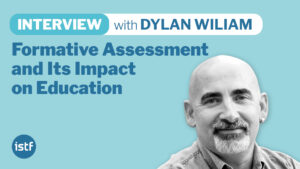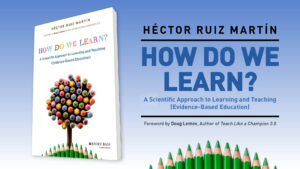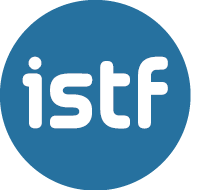Navarra Becomes the Epicenter of Evidence-Based Education with researchED Pamplona
On Friday, November 8, 2024, the Public University of Navarre (UPNA) hosted researchED Pamplona, the premier international event on educational research and practice. The conference was organized by the International Science Teaching Foundation, in collaboration with the Aprender-Ikasi Chair of the Public University of Navarre and San Cernin School, with sponsorship from Science Bits and Math Bits.
15 de novembre de 2024
Founded in 2013 in the United Kingdom by Tom Bennett, researchED seeks to close the gap between scientific research and classroom practices. The event brings together teachers, researchers, and education professionals to exchange evidence-based insights and experiences.
This year’s program included six presentations by prominent researchers and educators specializing in evidence-informed teaching strategies.
STEP BY STEP: THE DAY’S HIGHLIGHTS
The conference began with a welcome address by Héctor Ruiz Martín, director of the International Science Teaching Foundation (ISTF), who greeted attendees from across Spain and beyond. He also presented a video message from Tom Bennett, unable to attend in person.
In his message, Bennett pointed out the big gap between what science tells us about how people learn and the teaching methods that are often used in classrooms. Many times, these methods are shaped by tradition, intuition, or even unfounded myths. The founder of researchED stressed the importance of providing teachers with evidence-based strategies to improve both instruction and student learning outcomes.
Héctor Ruiz Martín, director of the International Science Teaching Foundation and an expert in cognitive psychology applied to education, opened the conference with a presentation titled “Educational myths: Popular Ideas in Education Without Scientific Support.” In his talk, Ruiz Martín explored several entrenched beliefs in education that lack a foundation in scientific research.
During his presentation, he stressed the importance of questioning and thinking critically about common teaching practices. While these practices might be popular, they often lack support from scientific research. He explained how cognitive biases can influence how we see and decide things, sometimes leading to teaching methods that don’t work well. Using examples like learning styles, the myth that people only use 10% of their brain, and other so-called “neuromyths,” he highlighted why it’s essential to base teaching methods on strong evidence.
The second presentation was delivered by Fátima García Doval, who holds a degree in Philosophy and Education Sciences, as well as a PhD in Educational Research and Innovation. In her talk, titled “A Philosophy of Education in Examples,” she discussed how many current practices, concerns, and debates in education have deep historical roots and have reappeared over time.
García Doval highlighted the value of learning about the history of education, explaining that many of the issues and debates we face today are not new: they have been dealt with in various ways in the past. She wrapped up her presentation by encouraging teachers to think about how understanding history can enrich their teaching and help them tackle both current and future challenges.
After a short coffee break, Pablo Ruisoto, a psychologist with a PhD in Neuropsychology from the University of Salamanca, presented his talk titled “The Anatomy of Innovations in Discovery Learning.” In his presentation, Ruisoto critiqued the widespread use of Problem-Based Learning (PBL) and other discovery-based methods in higher education.
Ruisoto questioned the broad adoption of PBL, pointing out that, although it is often seen as a new and innovative approach, it has actually been around for over 100 years and lacks strong scientific evidence supporting its effectiveness. He highlighted several problems with PBL, such as the unclear theoretical framework, the inconsistency in how it is applied, and the cognitive overload it can cause for students who do not have a solid foundation of knowledge.
He concluded by suggesting a careful approach when introducing new teaching methods, stressing the importance of using solid evidence to ensure that education remains effective and of high quality.
The fourth presentation was given by Juan G. Fernández, a secondary and high school teacher and the creator of the Investigación Docente blog. His talk, titled “The Role of Mistakes in Student Learning”, explored how mistakes can be an important part of the learning process and how teachers can use them effectively in the classroom.
Fernández began by stressing the importance of teachers staying informed by reading and applying educational research to enhance their teaching. He explained that learning occurs through the interaction between working memory and long-term memory. Long-term memory, which is made up of mental frameworks, shapes how we understand and process new information. He pointed out how students’ prior beliefs and common mistakes can influence their learning.
Fernández argued that mistakes should be seen as valuable opportunities for learning and that formative assessments are crucial for helping students learn from them. He also emphasized the importance of focusing on key learning goals, prioritizing essential and foundational concepts rather than trying to cover too many superficial topics.
After the fourth presentation, attendees enjoyed lunch at the facilities of the Public University of Navarra, which were set up to foster networking and conversation among participants. This break provided an excellent opportunity to exchange ideas, discuss different perspectives on the presentations, and encourage collaboration between teachers and researchers.
After the break, Cèlia Oliveira, PhD in Experimental Psychology and Cognitive Sciences, shared evidence-based learning strategies in her talk titled “Learning to Learn? Sure, but with Effective Strategies!” She focused on three key techniques for promoting lasting and transferable learning: retrieval practice, spaced repetition, and interleaving.
Retrieval practice involves actively recalling information through self-assessments and regular quizzes, which strengthens long-term memory and helps identify gaps in knowledge. Spaced repetition involves spreading study sessions over time, which is more effective than cramming everything into a single session because it reduces forgetting and better consolidates information. Finally, interleaving, or alternating between different types of problems or subjects during study sessions, has been shown through research to enhance learning retention.
Oliveira explained that although these strategies require more effort and may not feel intuitive at first, they are generally more effective than common approaches such as rereading or highlighting. The adoption of these techniques can lead to significant improvements in learning and academic performance.
The event concluded with a talk by Charo Rueda, a professor of Cognitive Psychology and Cognitive Neuroscience at the University of Granada, titled “Educating Attention.” In her talk, she explored the essential role attention plays in learning and cognitive development.
Rueda started by explaining that attention is a complex concept in psychology and noted that it has a limited ability to process information. She explained that attention helps us focus on certain information for conscious processing, while everything else fades into the background of our perception.
She went on to discuss how cognitive control is important not just for learning, but also for everyday actions and the regulation of both motor and emotional behaviors. Rueda pointed out that attention is key to executive functions, such as inhibitory control, working memory, and cognitive flexibility. Throughout her talk, she stressed the need to integrate these insights into education by designing tasks that gradually become more challenging and stimulate cognitive control, thereby strengthening attention and promoting deeper, more generalizable learning.
The evening ended with Héctor Ruiz Martín thanking everyone for their participation and highlighting how researchED serves as an important platform to connect scientific research with teaching practices, helping to improve both education and learning outcomes.
More information about the event
Official website: https://researched.es/

The International Science Teaching Foundation (ISTF) is a non-profit organization committed to improving STEM education, headquartered in London and Barcelona. The ISTF is formed by more than 30 scientists, educators and experts who work tirelessly to improve science teaching worldwide. Its mission is to foster an international community of STEM educators with an active dedication and commitment.











Leave a Reply